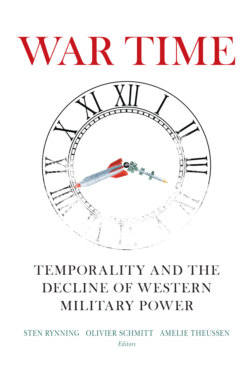Читать книгу War Time - Группа авторов - Страница 9
На сайте Литреса книга снята с продажи.
Perceptions: Western Thought and International Norms
ОглавлениеThe second dimension of temporality that we explore is the perception of time. As outlined above, this varies depending on the epoch or the culture. Different perceptions of time can have stark political consequences, including for the international institutions that by way of their normative stature today regulate the onset and conduct of war.
State history and context greatly shape changing perceptions of time. For example, as Christopher Clark has demonstrated, different understandings of the role of time had a significant impact on the political stance of different German leaders. In the seventeenth century the Great Elector perceived the present as a precarious condition between a terrible past and an uncertain future, and conceived his leadership role as breaking from entangling traditions in order to maximize choices between multiple possible futures. In contrast, in the following century Frederick II conceived of time as cyclical and aimed at establishing a sort of political stasis that could only benefit the state, while in the nineteenth century Bismarck was caught in a tension between his perception of the political leader as a decisionmaker navigating the torrent of history to the best of his abilities, and a sense of the state’s nature as being eternal.32 Remarkably, from the perspective of International Relations scholarship, the importance of perceptions of time has only rarely been applied to the study of war, although this topic is of increasing interest to scholars.33 For example, David Edelstein has explored how different time perceptions between states (which he calls “time horizons”) can cause strategic frictions: depending on their time horizons, states may favor short-term cooperation and thus inadvertently empower rivals who will challenge them in the long run.34 Similarly, strategic surprises may often result from conflicting time horizons between policymakers.
Perceptions of time sometimes converge and achieve durability as they become institutionalized, notably in the international arena, where governance by law and custom is notoriously subject to the vagaries of sovereign disputes. Today’s international law and customs as they relate to war are greatly indebted to Western thought, carried into the international domain by Western power and its vestiges. Perceptions of time directly shape the ways in which states generate military power. This has important consequences for the West’s ability to balance military power and liberal principles, notably pacing itself in the conduct of war.
